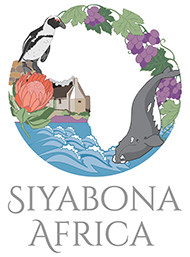
Table Mountain - Too Big to Miss
Take the cable car to the top or take a beautiful hike up the mountain and meet the guides at the top only 20m (65.6 feet) from the upper cableway station. Here the instructors will explain the gear and technique to you, make sure of your safety and over you go for the experience of a lifetime.Cape Town's famous 1000m (3280.8 feet) landmark presents a range of dramatic vertical cliff faces where you can try the world's highest abseil at 112m (367.4 feet) high! Enter the adrenaline zone as you abseil off the edge of Table Mountain. You'll see awesome views while descending the incredible cliffs. Follow an easy hike back to the top to make this a lasting experience.During the summer, a southeasterly wind picks up moisture as it crosses the Agulhas current and False Bay. As the wind reaches Table Mountain and hits cooler air, it rises and condenses into thick white clouds that gracefully blanket the summit of Table Mountain creating the 'table cloth' effect. The 'table cloth' or condensed air that artfully drapes over the table top then pours down into the city bowl eventually dissolving into warmer air.In clear view from Table Mountain lies Signal Hill. There are great views from the 350 metre (1148.2 feet) summit of Signal Hill as well. Signal Hill, which lies between Sea Point and the City Bowl, derived its name from practical purposes. Flags were hoisted from Signal Hill to warn residents of approaching ships.This World Heritage Site is Cape Town's most unique identifying landmark. Its summit soars 1086 metres (3562.9 feet) above sea level and can be reached by means of a revolving cable car. Visitors can marvel at the awe-inspiring 360 degrees view of Cape Town while enjoying a meal or refreshing drink at the restaurant, or wandering the rocky trails lined with beautiful Fynbos. The mountain is, in fact, covered with a wide variety of wild flowers and is the natural home of the famous Silver tree.Take the Cable car up Table Mountain
The views from Table Mountain are worth seeing! A vigorous hike or cable car ride up Table Mountain reveals simply phenomenal scenery. The adventuresome can hike to the top in an hour or so, and there are many extensively attractive walks on the tabletop as well.The cable car rotates so viewers can capture the panorama, however the cable car moves quickly up and down the mountain so photography is better from the top. From the mountain plateau, views stretch from Cape Town Harbour's western edge to Cape Point in the distance on the Atlantic horizon.The mountain is more than 1000 metre (3280.8 feet) high and is home to a variety of animal species like the Rock Hyrax or Rock Dassie, which has become habituated due to tourism. Oddly, Rock Dassies are the closest biological relative to the Elephant, but look more like Rodents. You'll certainly see one while atop Table Mountain as they frequent the summit restaurant and shops feeding on leftover lunch scraps.The first car up the mountain is at 7:30am; the last car up is 9pm. Times vary during the winter months. The last car leaves the top at 10pm. The cable car doesn't operate on windy days of 40km / hour (24.8 miles / hour), and with high winds of 30km / hour (18.6 miles / hour), the car stops taking passengers up but will continue to bring people down.Bring sunscreen and clothing for changing weather. One way and return tickets can be purchased at the cable car offices. The drive to the lower cable car station is clearly marked. Follow the signs to the starting point from Upper Kloof Nek Road.

